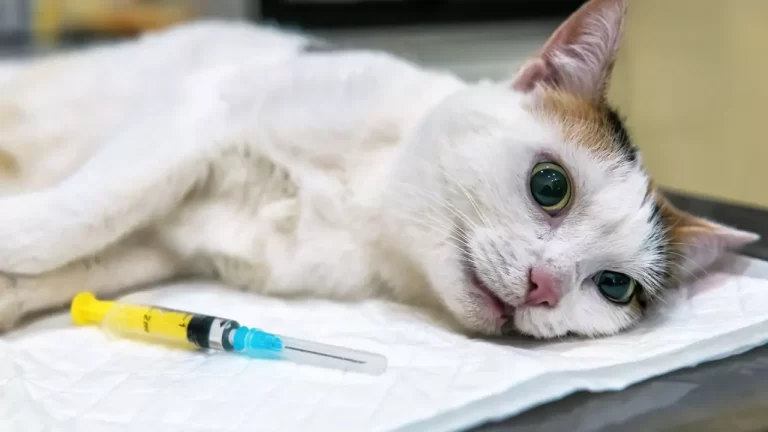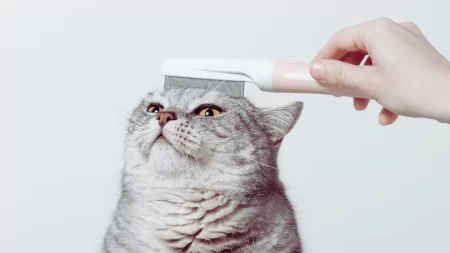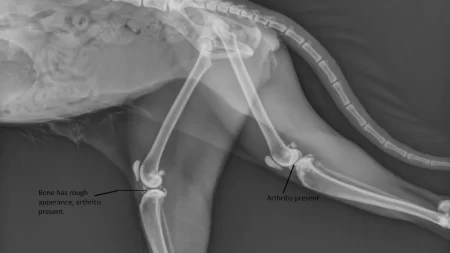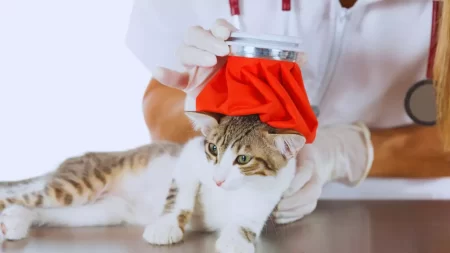Anesthesia is generally very safe for cats, with a mortality rate of less than 1 in 100,000. However, there are some risks associated with anesthesia, especially for cats with underlying health conditions.
Types of Anesthesia for Cats
There are two main types of anesthesia for cats: general anesthesia and local anesthesia. General anesthesia is achieved by administering drugs that affect the whole body and make the cat unconscious and unable to feel pain. Local anesthesia is achieved by administering drugs that affect only a specific area of the body and numb the sensation of pain.
There are also different ways of delivering anesthesia to cats: injectable anesthetic and inhalant anesthetic. An injectable anesthetic is given through an injection into a vein or a muscle. Inhalant anesthetic is given through a mask or a tube into the airway. Both methods can be used alone or in combination, depending on the duration and complexity of the procedure.
Some of the commonly used anesthetic agents for cats are:
- Diazepam: A benzodiazepine that provides sedation and muscle relaxation.
- Ketamine: A dissociative anesthetic that provides analgesia and amnesia.
- Propofol: A short-acting anesthetic that provides rapid induction and recovery.
- Alfaxalone: A neuroactive steroid that provides smooth induction and recovery.
- Isoflurane: A volatile anesthetic that provides deep anesthesia and good control of vital signs.
- Sevoflurane: A volatile anesthetic that provides fast induction and recovery and low respiratory depression.
- Lidocaine: A local anesthetic that blocks nerve impulses and provides numbness.
- Bupivacaine: A local anesthetic that blocks nerve impulses and provides long-lasting numbness.
Risks Associated with Anesthesia for Cats
Anesthesia is generally safe for cats, but it is not without risks. Some of the possible complications that can occur during or after anesthesia are:
- Aspiration: This occurs when vomit or other foreign material enters the lungs and causes inflammation or infection. This can be prevented by fasting the cat before anesthesia and placing an endotracheal tube to protect the airway.
- Other complications: These include organ failure, bleeding, infection, allergic reaction, low blood pressure, low blood oxygen, low body temperature, cardiac arrest, or death. These can be minimized by performing preoperative screening, choosing appropriate anesthetic agents, monitoring vital signs, providing supportive care, and treating any problems promptly.
Some factors that can increase the risk of anesthetic complications for cats are:
- Age: Older cats may have reduced organ function or underlying diseases that can affect their response to anesthesia.
- Breed: Some breeds of cats may have genetic predispositions or anatomical features that can affect their response to anesthesia. For example, brachycephalic breeds (such as Persians) may have difficulty breathing under anesthesia due to their short noses and narrow airways.
- Health status: Cats with pre-existing medical conditions (such as heart, liver, kidney, or respiratory disease) may have impaired ability to metabolize or eliminate anesthetic drugs or cope with stress.
- Body weight: Underweight or overweight cats may have altered distribution or clearance of anesthetic drugs or increased risk of hypothermia or hypoglycemia.
Minimizing the Risks of Anesthesia for Cats
There are several steps that can be taken to minimize the risks of anesthesia for cats and ensure a safe and successful outcome. These include:
- Preoperative screening: This involves performing a physical examination and blood tests to assess the cat’s health status and identify any potential problems or contraindications for anesthesia. This can help the veterinarian choose the best anesthetic protocol for each individual cat.
- Proper monitoring: This involves using specialized equipment and trained staff to monitor the cat’s vital signs (such as heart rate, blood pressure, oxygen saturation, temperature, etc.) throughout the procedure. This can help detect any changes or abnormalities in the cat’s condition and adjust the anesthetic depth accordingly.
- Choosing a skilled veterinarian: This involves selecting a veterinarian who has experience and expertise in performing anesthesia on cats and who follows the latest guidelines and standards of care. This can ensure that the cat receives adequate pain relief, appropriate anesthetic agents, proper monitoring, and prompt intervention if needed.
Recovery from Anesthesia for Cats
After the procedure is completed, the cat will be transferred to a recovery area where he will be monitored until he regains consciousness and his vital signs are stable. The recovery time may vary depending on the type and duration of anesthesia, the type and complexity of the procedure, and the individual response of the cat. Some cats may recover quickly and be ready to go home the same day, while others may need to stay overnight or longer for observation and care.
Some of the things that cat owners can expect and do during the recovery period are:
What to Expect?
The cat may be groggy, disoriented, or vocal for a few hours after anesthesia. He may also have some side effects such as nausea, vomiting, diarrhea, appetite loss, or soreness at the injection site. These are usually mild and temporary and should resolve within a day or two. However, if they persist or worsen, the cat should be seen by a veterinarian as soon as possible.
How to Help Your Cat Recover?
The cat should be kept in a quiet, warm, and comfortable place away from other pets and children. He should be offered small amounts of water and food as soon as he is able to eat and drink. He should also be given any medications or instructions prescribed by the veterinarian. He should be monitored closely for any signs of pain, distress, or abnormal behavior and contact the veterinarian if any concerns arise.
Potential Complications
Some of the potential complications that can occur during the recovery period are infection, bleeding, swelling, dehiscence (opening of the surgical site), or anesthetic reaction. These can be prevented by following the postoperative care instructions, keeping the surgical site clean and dry, preventing the cat from licking or scratching it, and using an Elizabethan collar if needed. These can also be treated by seeking veterinary attention promptly if they occur.
Questions to Ask Your Veterinarian
Before taking the cat home, it is important to ask the veterinarian some questions about the anesthesia and the procedure. Some of these questions are:
- What type of anesthesia was used and how long did it last?
- What type of procedure was performed and how did it go?
- What are the expected outcomes and prognosis for the cat?
- What are the possible risks and complications for the cat?
- What are the signs of pain or discomfort for the cat?
- What are the medications or instructions for the cat?
- When is the next follow-up visit or phone call?
- Who should be contacted in case of emergency?







